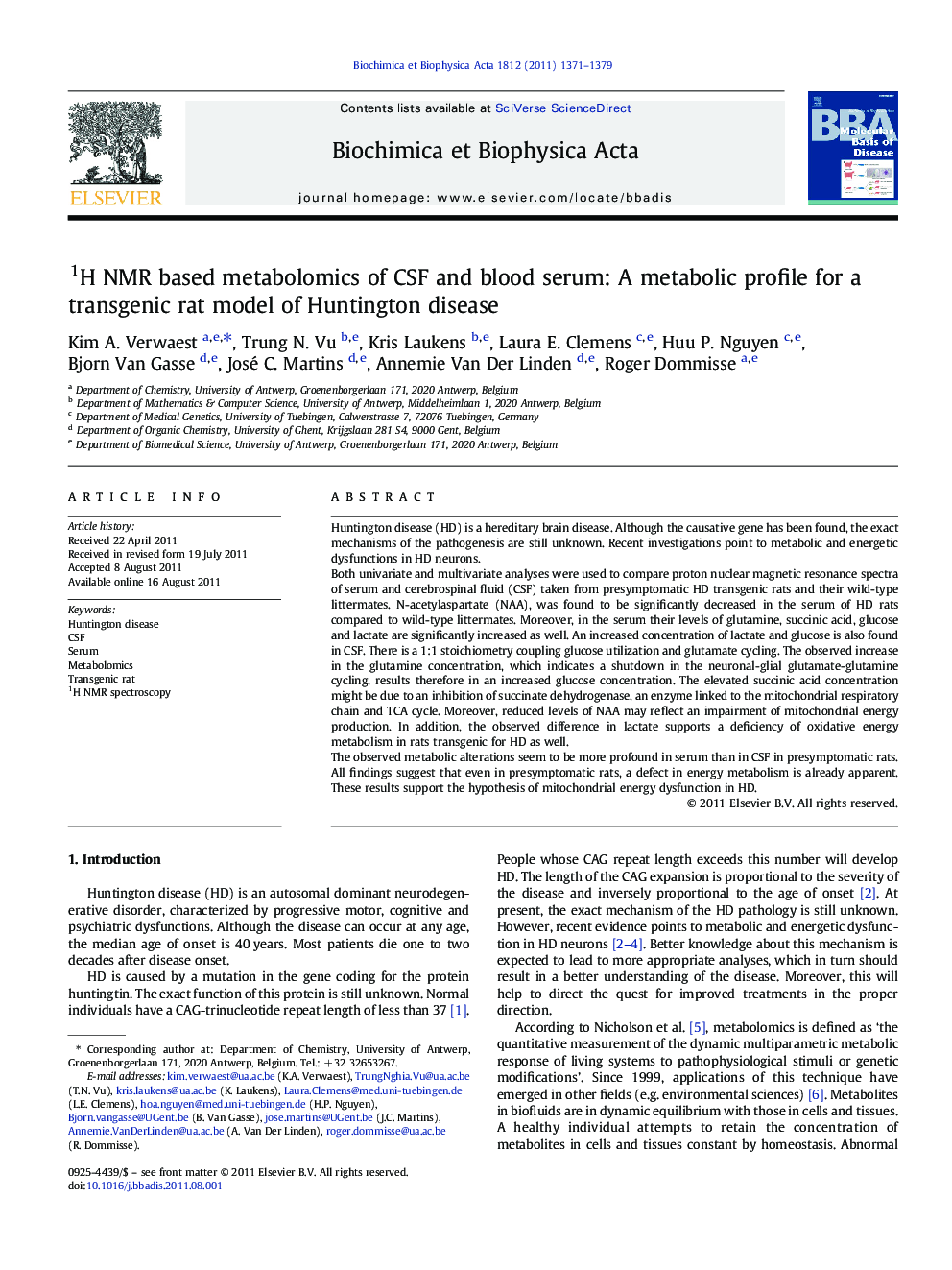| Article ID | Journal | Published Year | Pages | File Type |
|---|---|---|---|---|
| 1905107 | Biochimica et Biophysica Acta (BBA) - Molecular Basis of Disease | 2011 | 9 Pages |
Huntington disease (HD) is a hereditary brain disease. Although the causative gene has been found, the exact mechanisms of the pathogenesis are still unknown. Recent investigations point to metabolic and energetic dysfunctions in HD neurons.Both univariate and multivariate analyses were used to compare proton nuclear magnetic resonance spectra of serum and cerebrospinal fluid (CSF) taken from presymptomatic HD transgenic rats and their wild-type littermates. N-acetylaspartate (NAA), was found to be significantly decreased in the serum of HD rats compared to wild-type littermates. Moreover, in the serum their levels of glutamine, succinic acid, glucose and lactate are significantly increased as well. An increased concentration of lactate and glucose is also found in CSF. There is a 1:1 stoichiometry coupling glucose utilization and glutamate cycling. The observed increase in the glutamine concentration, which indicates a shutdown in the neuronal-glial glutamate-glutamine cycling, results therefore in an increased glucose concentration. The elevated succinic acid concentration might be due to an inhibition of succinate dehydrogenase, an enzyme linked to the mitochondrial respiratory chain and TCA cycle. Moreover, reduced levels of NAA may reflect an impairment of mitochondrial energy production. In addition, the observed difference in lactate supports a deficiency of oxidative energy metabolism in rats transgenic for HD as well.The observed metabolic alterations seem to be more profound in serum than in CSF in presymptomatic rats. All findings suggest that even in presymptomatic rats, a defect in energy metabolism is already apparent. These results support the hypothesis of mitochondrial energy dysfunction in HD.
►1H NMR based metabolomics study of rats transgenic for Huntington disease. ► Both in serum and CSF metabolic differences are observed in presymptomatic rats. ► The metabolic disturbance is more profound in serum than in CSF. ► All findings indicate a defect in energy metabolism in the transgenic rats.
